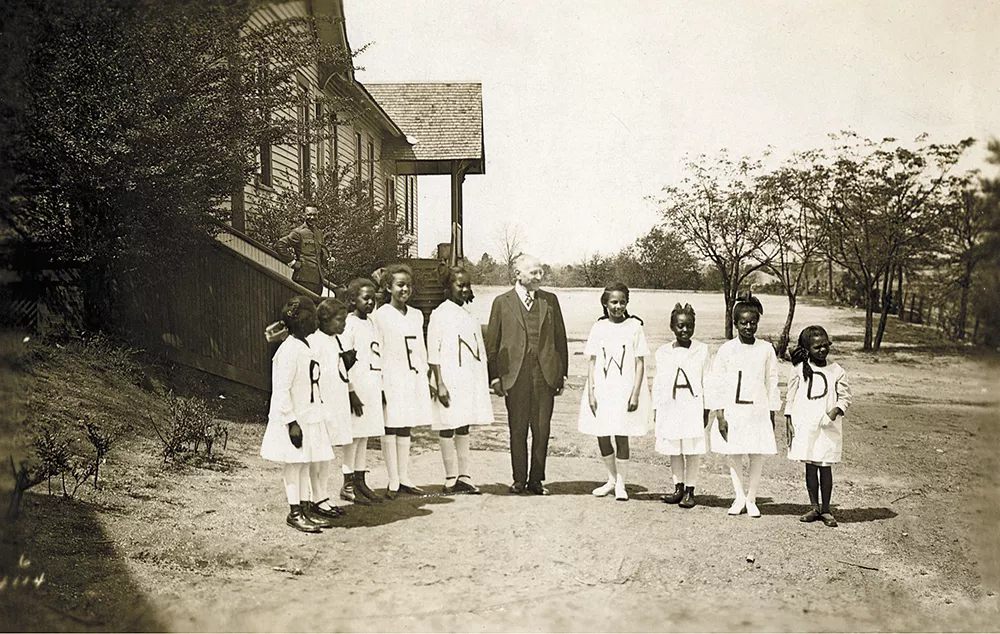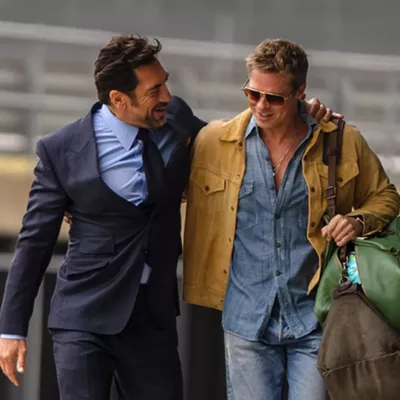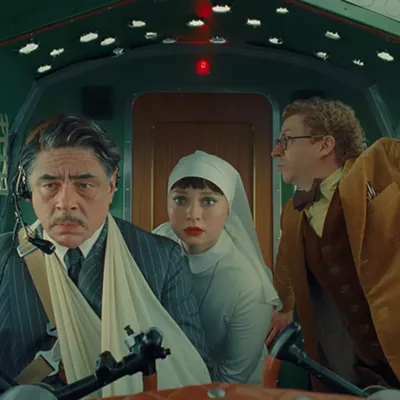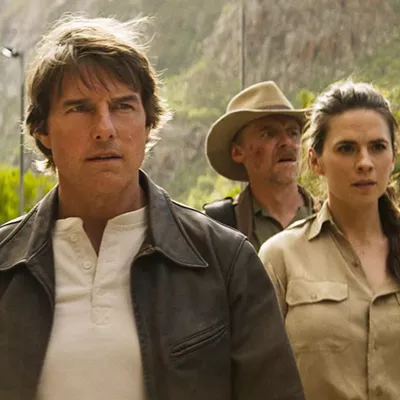Despite its overlong running time and a tendency toward the dreaded PBS Effect (during which the viewer fears that a fall fundraising drive may break into the narrative at any moment), this documentary about a Chicago-based Jewish philanthropist who spent his fortune building schools for impoverished Southern blacks during the Jim Crow era is dependably fascinating. I say "dependably" because director Aviva Kempner has made a career out of uncovering semi-forgotten areas of 20th-century Jewish history and turning them into memorably witty and historical documentaries, chief among them the story of television's very first (and unquestionably Semitic) sitcom, Yoo-Hoo, Mrs. Goldberg.
Rosenwald doesn't quite knock it out of the park with the epic showmanship of baseball doc The Life and Times of Hank Greenberg, but it nevertheless illuminates a little-remembered (or, in the case of this writer, outright unknown) figure of prominence in not just Jewish-American history, but the confluence of Jewish-American history and African American history — namely, Julius Rosenwald.
Kempner shines a much-needed light on Rosenwald, the son of German immigrants who essentially shepherded the Sears & Roebuck Company into the 20th century, with a hand from Henry Goldman (of Goldman Sachs). After making his fortune, Rosenwald turned his attention to some major-scale philanthropy. After being introduced to Booker T. Washington and recalling the pogroms his ancestors had suffered in Europe, this innately progressive Northern businessman focused his attention and his tremendous wealth on the plight of Southern blacks. Between 1915 and 1932 he bankrolled the construction of some 5,400 schoolhouses, many of which were set ablaze by the Klan, rebuilt, set ablaze again, and rebuilt.
That in itself makes for ideal documentary material, but Kempner surrounds the remarkable story of Rosenwald's life with often-moving input from the likes of Maya Angelou and Ossie Davis, as well as film and television clips (Clint Eastwood in Rawhide!) that serve to underscore the voice-over exposition.
Rosenwald went on from constructing centers of education and uplift to building affordable housing for African Americans in Chicago, becoming a patron for African American art, and, eventually, saving some 300 relatives from the Nazis. Rosenwald at times seems as though it's trying too hard to make its subject a bona fide saint (there's that PBS Effect again) but the fact remains that the schoolrooms Rosenwald built — those that still remain standing — were declared National Treasures by the National Trust for Historic Preservation in 2011, a fact I would probably never have learned were it not for Kempner's engrossing, if rather drawn-out, film.♦















